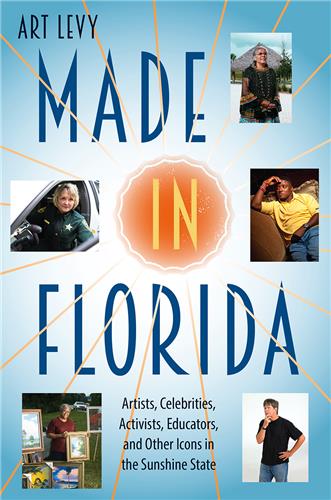This delightful collection is designed to assist students in developing their reading, speaking, and writing knowledge of Portuguese as it is used in present-day Brazil.
Search Results for 'forall x'
1840 results for 'forall x'
Please note that while you may order forthcoming books at any time, they will not be available for shipment until shortly before publication date
Discover some of Florida’s most fascinating personalities in this entertaining kaleidoscope of interviews. Made in Florida showcases a colorful lineup of notable people who got their start in the state and who have helped make it the unique, diverse place it is today.
Bringing far-removed time periods into startling conversation, this book argues that certain attitudes and practices present in Europe’s Middle Ages were foundational in the development of the western concept of race.
The architectural, military, environmental, and political history of a little-known Civil War outpost that was the most heavily armed coastal defense fort in United States history.
Venezuela's Petro-Diplomacy offers fresh, authoritative insights into a wide array of questions hanging over Venezuelan foreign policy and the leadership of the maverick president, Chavez.
This collection of 15 vibrant short stories written by Latin American women includes works from acclaimed writers such as Isabel Allende and Luisa Valenzuela as well as dynamic new voices. Furthermore, this edition features a new foreword by the
This book is a sweeping story of filmmaking in Florida, chronicling the state’s importance to producers throughout 125 years by looking at the many iconic films and television shows made across the peninsula.
This volume brings together specialists from different areas of medieval literary study to focus on the role of habits of thought in shaping attitudes toward women during the Middle Ages.
Known in Cuba as a poet, essayist, translator, and professor, Saldana won the prestigious Nicholas Guillen Award for Distinction in Poetry in 1998 and the La Rosa Blanca Prize for La Noche, a children's book, in 1989. Before her death in 1999, most of her work had appeared in Spanish exclusively in Cuba with only scattered translations. This collection emphasizes her construction of a personal and poetic autobiography to reveal the identity of one of the best Afro-Caribbean poets of the twentieth century.











